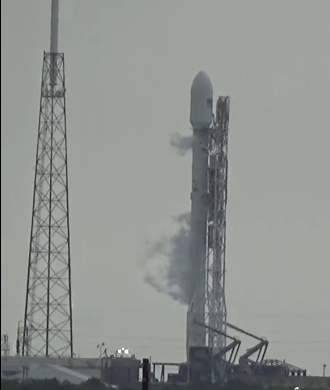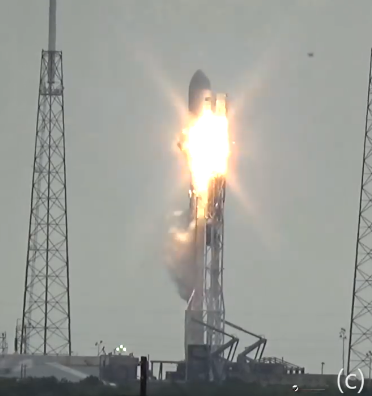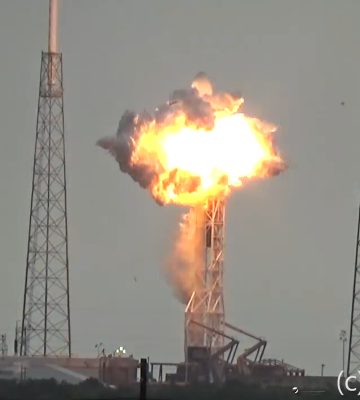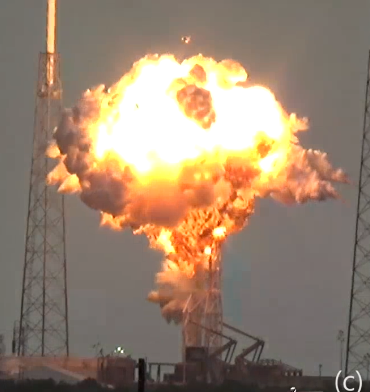Well, this ain’t good. During propellant loading operations, an explosion occurred at the Falcon 9 launch pad, destroying the rocket and the Amos 6 communications satellite.
Details are fuzzy, but some reports suggest that it was the hydrazine propellant for the *satellite* that was the cause of the explosion rather than the Falcon 9 itself.
Explosion at SpaceX launch pad destroys rocket, satellite
So far, very little to go on. All the videos I’ve seen start well after the explosion; not too many people were filming the rocket at the time, as nothing was scheduled to happen right about then. I’m sure more will come out later. The engineer in me say “probably just one of them things, sometimes mistakes are made or mechanisms fail,” but the more paranoid part of me wonders about:
- It was an Israeli satellite. There are people who don’t like the Israelis.
- SpaceX’s recent successes have irritated some big-money competitors, who have had to crank out new designs of their own in order to compete. They won’t be saddened to see SpaceX take a hit.
So, which would be worse? Bog-standard engineering/operations failure… or sabotage?
UPDATE: Video of the explosion itself:
Time between visible explosion and audible is about 12 seconds, so the camera is probably about 2.5 miles away.
Here are some craptacular screenshots from the above video:
Note that the explosion seems to originate from just below the payload fairing…
The explosion starts up top, and you can see it march down through the booster, bursting the tanks.
A few seconds in, you can see the payload fairing drop. By this point the booster itself is long gone; it seem like the fairing was actually being supported by the tower. Note that the top of the tower is now bent over.
Since the explosion originated below the payload shroud, my guess is that the *payload* didn’t initially explode. Looks like either the upper stage or the feed lines leading into the payload. In either event, it’s damned odd to have an explosion at the point in the process. A static discharge event? A hydrazine leak onto something catalytic?




